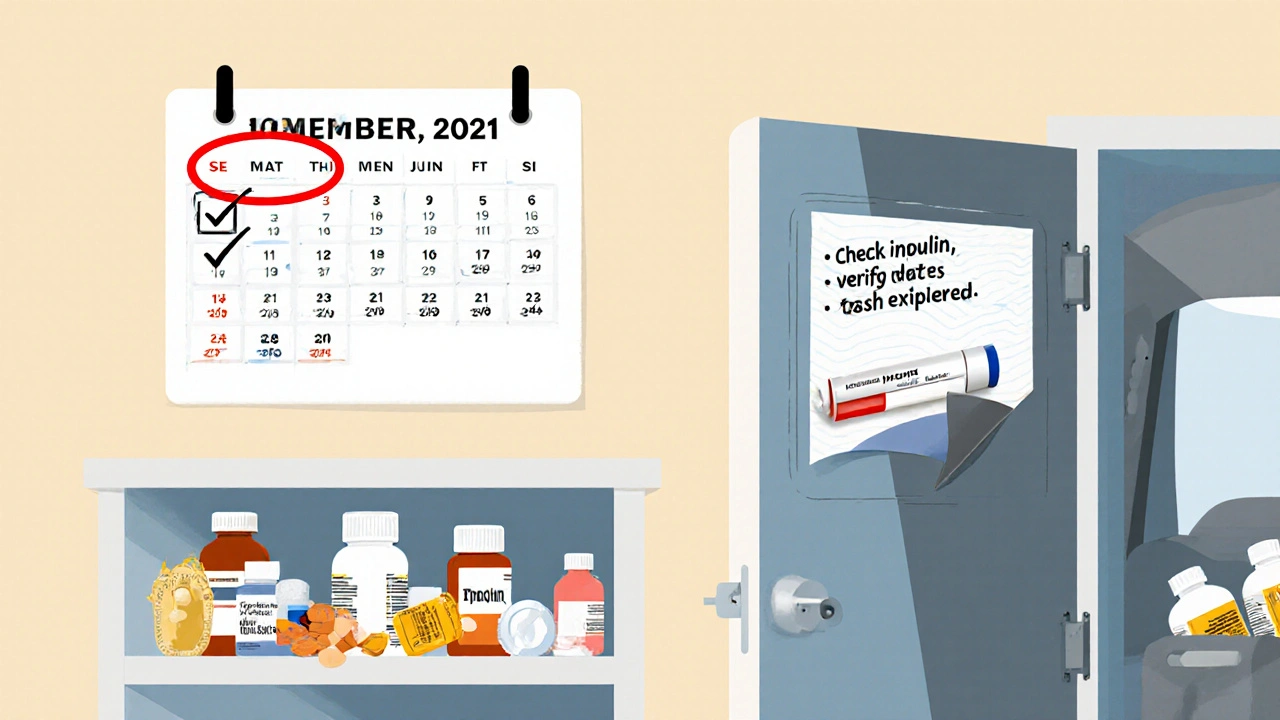Medication Expiration Schedule: When Drugs Lose Their Power and What to Do
When you see a date on your pill bottle, it’s not just a suggestion—it’s a medication expiration schedule, the official date by which a drug is guaranteed to be fully potent and safe to use. Also known as drug shelf life, this date is set through testing by manufacturers under controlled conditions. After that date, the medicine might not work as well, or worse, it could break down into harmful substances. Most people think expired pills are just useless, but that’s not always true. Some drugs lose strength slowly. Others, like insulin or liquid antibiotics, can become dangerous if used past their date.
The medication storage, how and where you keep your drugs. Also known as pharmaceutical storage, it directly affects how long a drug stays effective. Heat, moisture, and light speed up breakdown. A bathroom cabinet? Bad idea. A cool, dry drawer? Much better. Even if the expiration date is still months away, a bottle left in a hot car or a humid bathroom could be ruined. That’s why some medications—like nitroglycerin for heart pain—come with warnings to replace them every six months, even if the bottle says otherwise.
Then there’s the expired medications, drugs used after their labeled expiration date. Also known as outdated pharmaceuticals, they’re a common problem in households and clinics alike. Studies show many pills remain stable for years past their date, especially tablets kept dry and cool. But that doesn’t mean you should take them. Critical drugs like epinephrine, seizure meds, or blood thinners? Don’t risk it. A 10% drop in strength might not matter for an antihistamine, but it could mean the difference between life and death for someone relying on warfarin or insulin. The FDA has tested hundreds of drugs and found many still work years later—but they also say you shouldn’t rely on that. Why? Because you can’t test your own pills at home.
Some states have rules about dispensing expired meds, and pharmacies have systems to rotate stock and avoid waste. But you’re still the last line of defense. Check your medicine cabinet twice a year. Toss anything discolored, cracked, or smelling odd. Keep a list of what you have, and note the expiration dates. Don’t hoard meds "just in case." Buy only what you need. If you’re on a fixed income, ask your pharmacist about sample programs or discounts on new supplies—there are ways to stay safe without overspending.
There’s a lot of confusion around this topic. Some blogs say expired aspirin is fine. Others warn that all antibiotics become toxic. The truth? It’s complicated. That’s why we’ve gathered real, practical posts here—about how storage affects potency, why some drugs expire faster than others, what the FDA really knows about long-term stability, and how to safely dispose of what you don’t need. You’ll find guides on compounding meds, NTI drugs, and even how to reduce pharmaceutical waste without putting your health at risk. This isn’t guesswork. It’s what you need to know before you open that bottle.
Learn how to create a simple, effective medication expiration review schedule to avoid using unsafe or ineffective drugs. Protect your health, save money, and reduce waste with practical steps and expert-backed tips.
Nov, 7 2025

